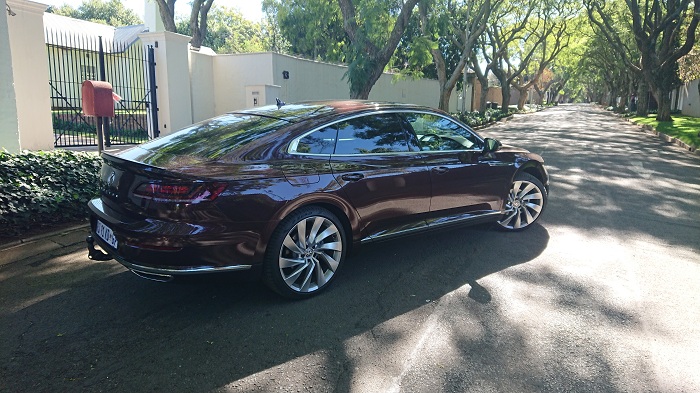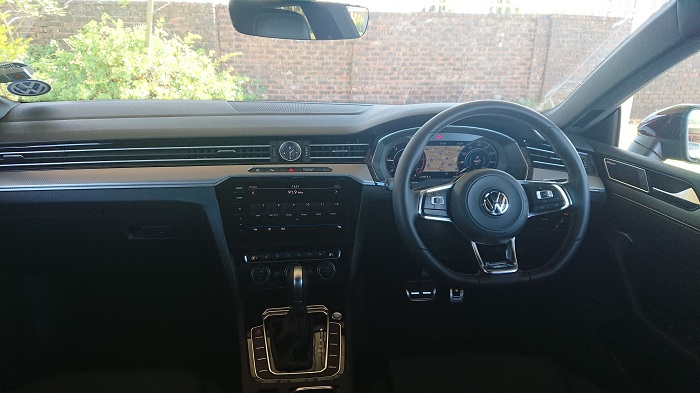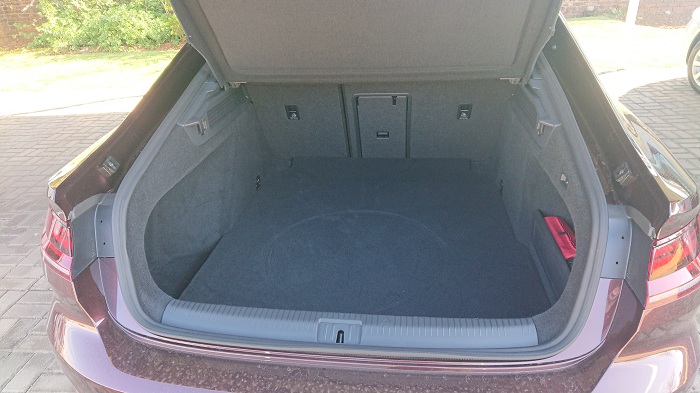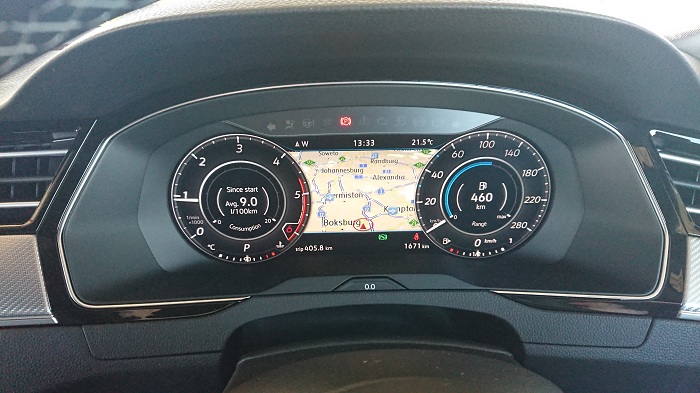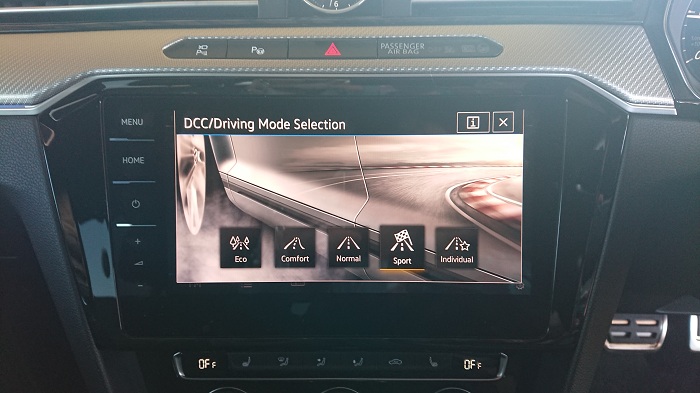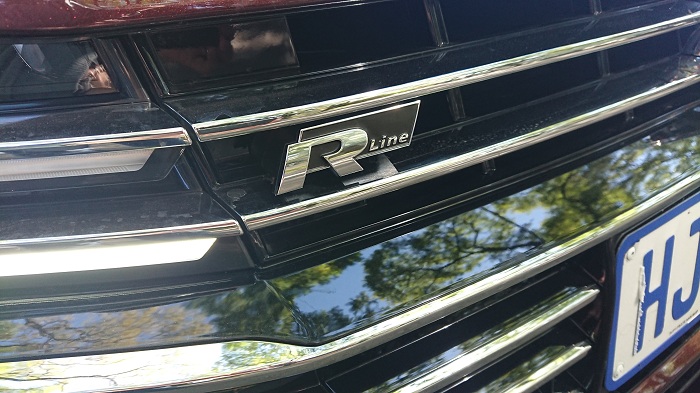The German outsider
This trend is best reflected in the once thriving D-segment where anything but a three-pointed star, four rings or blue-and-white propeller badge is simply not enough to warrant mass consumer attention no matter what.
It has however not stopped the other automaker from the Fatherland to give this segment another go with possibly one of its most dramatically styled models to date. Welcome to the Arteon, a replacement for the long since discontinued CC and a car Volkswagen has dubbed an “avant-garde grand turismo”.
From concept to production nearly untouched
Effectively the production version of the Sport Coupe Concept GTE shown at the Geneva Motor Show three years ago, the Arteon takes over from the Passat as Volkswagen’s new flagship sedan, and immediately received the thumbs-up from the entire Autodealer team when a striking deep purple 2.0 TDI R-Line model arrived for testing.
Viewed on first glance, the Arteon simply oozes elegance with its long bonnet, elongated headlights with integrated daytime running LEDs, expansive chrome grille and fastback rear end styling with more than a few nods, when viewed from the C-pillar back, to the Porsche Panamera.
Combined this with the sporty looking boot spoiler, oval tipped chrome exhausts flushed with the rear bumper, blacked-out LED taillights, R-Line bodykit and those racy (optional) 20-inch alloy wheels, and you have what this writer considers to be one of the best looking sedans on sale in South Africa today.
Premium if a little plain inside
Moving inside, you could consider the interior to be on the plain side versus the Arteon’s flamboyant exterior, but in typical Volkswagen fashion, there is an almost clinical approach in ensuring a premium feel with a simplistic layout.
Trimmed in soft touch plastics with an aluminium finished centre strip and piano key black detailing around the 9.2-inch Discover Pro infotainment system, the cabin also gets the obligatory customisable 12.3-inch Active Info Display instrument cluster as standard, along with the R-Line specific sport steering wheel, a black roofliner, alloy pedals and nappa leather seats with R-Line embroidered headrests and heated front pews.
As plush and indeed upmarket as the interior is, it also hides a number of quirks in that the aforementioned infotainment system, which features a glass face and boasts Bluetooth, Apple CarPlay, Android Auto and App Connect, tends to show finger prints rather quickly, while the gesture control function is still not as slick as that of BMW.
A spacious, comfortable GT
On the flip side, the Arteon wears its GT description on its sleeve with superbly comfortable seats, and impressive levels of head and legroom at the rear, despite the fitment of the panoramic roof as standard. The fastback styling also translates to a boot that only looks capacious, but which can swallow 563-litres of luggage with the rear seats up, or up to 1 557-litres with the 60/40 split folded down.
Loaded with safety
With the Arteon being its range topper, Volkswagen has left nothing to change on the safety front, with notable driver assistance systems being a surround view camera system, Front Assist and City Emergency Braking, Adaptive Cruise Control, cornering headlights, Blind Spot Assist and Heads-Up Display projected on a somewhat flimsy looking, thin plastic screen.
Familiar power station up front
Despite the global shunning of diesel engines, South Africans have, for now, remained loyal to oil burners with the long serving 2.0 TDI likely to be most popular as it not only powers the R-Line, which can also be equipped with a 206kW/350Nm version of the Golf R’s 2.0-litre TSI mill, but also the entry-level Elegance.
Producing a healthy 130kW/350Nm, the stalwart four-cylinder still emits a noticeable diesel clatter at the push of the starter button, but settles down quickly before delivering its punch from low down with very little lag.
Mated to a six-speed DSG ‘box that goes about its business in the most effortless way possible, the drivetrain suits the GT nature of the Arteon well, although for the full effect, the petrol model, which adds a seventh ratio and 4Motion all-wheel drive, will deliver on the dynamic front a tad better.
On the road
Counting in the diesel’s favour though, and more crucial than ever, is fuel consumption where despite spells in Sport mode combined with frequent use of the steering wheel mounted gear shift paddles, saw Arteon return an indicated 5.2-litres/100km after well over 400km and with still half a tank of diesel left.
Underpinned by Volkswagen’s flexible MQB platform, the Arteon’s ride is best described as refined and extremely comfortable in spite of those 245/35 section wheels, yet with the Dynamic Chassis Control selector in its sportiest setting as mentioned, progress becomes spritely both off the mark and when you are keen to press on.
Conclusion
For all of its credentials, the simple answer is that the Volkswagen Arteon will remain a left-hand field choice compared its German comrades. Aside from the lacking cachet of a BMW 4-series Gran Coupe or an Audi A5, its asking price of R649 900 sans options is just over R51 000 more than the similarly powered, all-wheel drive Volkswagen Tiguan 2.0 TDI R-Line, which is likely to seal its fate as a niche option in a diminishing section.



